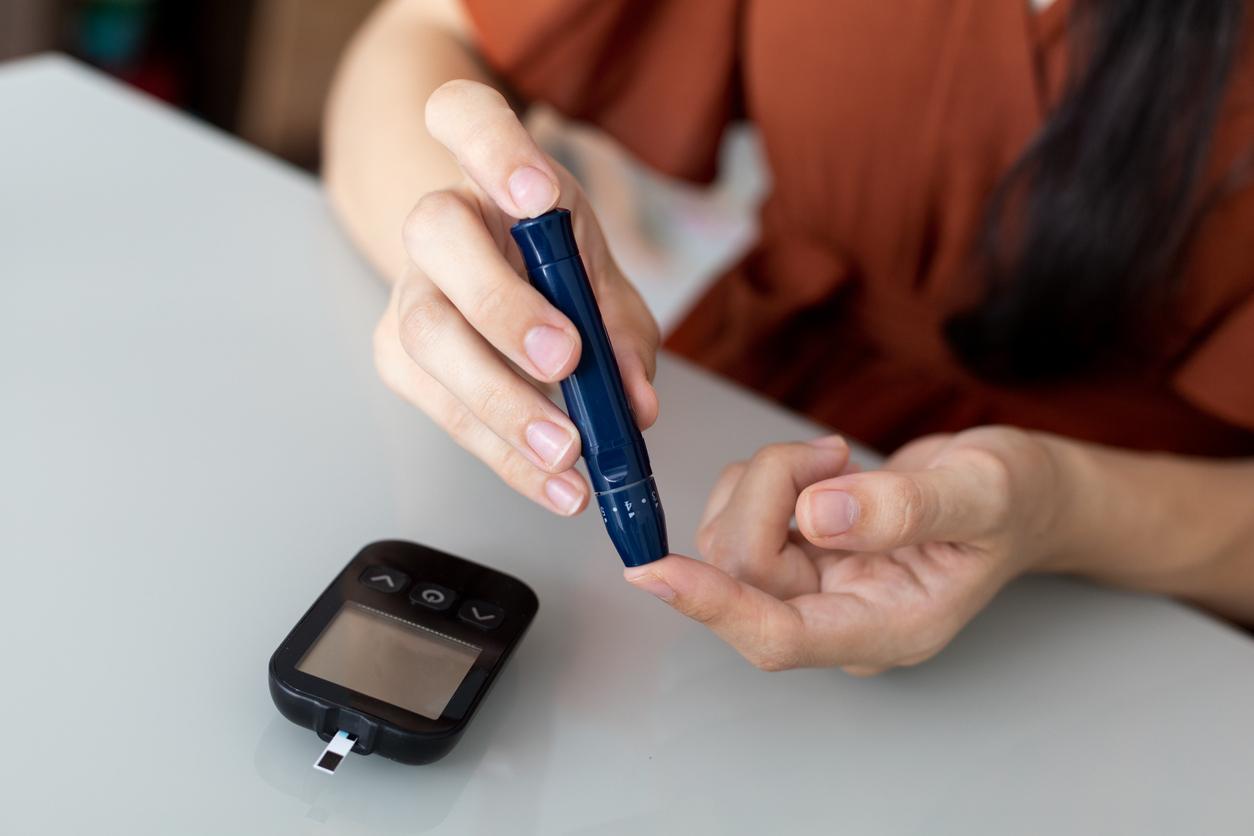Young diabetic girls are said to be twice as likely to suffer from an eating disorder. They put themselves in danger by reducing their insulin dose to lose weight.

“Diaboulimia” … Just the word scares people. This term used by the British is in fact a contraction of “diabetes” and “bulimia” which designates these type 1 diabetics who do not respect their treatment and reduce their dose of insulin to lose weight. “I admit that I did not know the expression diaboulimie, declares Dr. Jean-Pierre Riveline, diabetologist at the southern Ile-de-France hospital in Corbeil-Essonne and referent of the French association of diabetics (AFD), but we all know this phenomenon. And these are extremely difficult situations to deal with. “
According to a British organization, the NHS National diabetic information service, more and more young women between the ages of 15 and 30 are adopting this risky behavior. Between April 1, 2010 and March 31, 2011, 8,472 people were admitted to hospital in Britain for ketoacidosis, which is a serious complication of lack of insulin. Faced with the scale of the phenomenon, an association of diabetics is demanding that “diaboulimia” be officially recognized as a mental illness. For them, it is the necessary step so that these young women are then better taken care of.
Who is affected by “diaboulimia”?
They are mainly teenage girls. At this age, diabetics have a particularly hard time with the constraints linked to their disease and the image of the body is, as we know, particularly disturbed. Young women with diabetes are said to be twice as likely to suffer from an eating disorder as their non-diabetic counterparts. According to some studies, 10% of type 1 diabetics are affected by anorexia or bulimia.
What are the risks of reducing your insulin doses?
When these young women moderately reduce insulin doses, the danger is not immediate. But, the glycemic imbalance can lead 10 or 20 years later to the development of certain complications of diabetes, such as diabetic retinopathy which can lead to blindness, but also kidney or heart damage. On the other hand, if the patients go so far as to completely deprive themselves of their insulin injection, the consequences can be dramatic.
Listen to Dr Jean-Pierre Riveline, diabetologist at the Corbeil-Essonne hospital center: “The body is forced to tap into fat. This leads to the production of acetone, which can cause a coma.”
What advice can we give to these young diabetics who are looking to lose weight?
“First of all, you have to explain to them that insulin does not make you fat. On the other hand, the lack of insulin causes a glycemic imbalance, and therefore a loss of calories and a destruction of fats ”, explains Dr. Riveline. However, if a diabetic wants to lose weight, it is quite possible to adjust the dose of insulin to the amount of food consumed. On condition of course to do it under medical supervision.
Then, you should know that a slight imbalance in blood sugar, the famous glycated hemoglobin that all diabetics monitor, is not a disaster. “The doctor must also accept it,” says Dr. Riveline.
Listen to Dr Jean Pierre Riveline : “The mistake would be to take the person head-on because they have 8.5% glycated hemoglobyne when the goals set are 7.5%. “
Finally, if a person continues to flip flops with their insulin injections, a consultation with a psychologist or psychiatrist specializing in eating disorders can help resolve the situation.
What are the signs to which the entourage should be attentive?
As a bulimic hides to make himself vomit, a “diabulimic” will decrease his insulin doses in secret. However, there are a few signs that may arouse the suspicions of parents or spouse. When the disorder is moderate, the only detectable signal is obviously weight loss. On the other hand, when a young woman completely deprives herself of her injections, two signs of seriousness should alert: nausea and vomiting but also a breath with the smell of rotten apple … In this case, to avoid a coma, it is necessary to quickly go to the hospital.
.

















